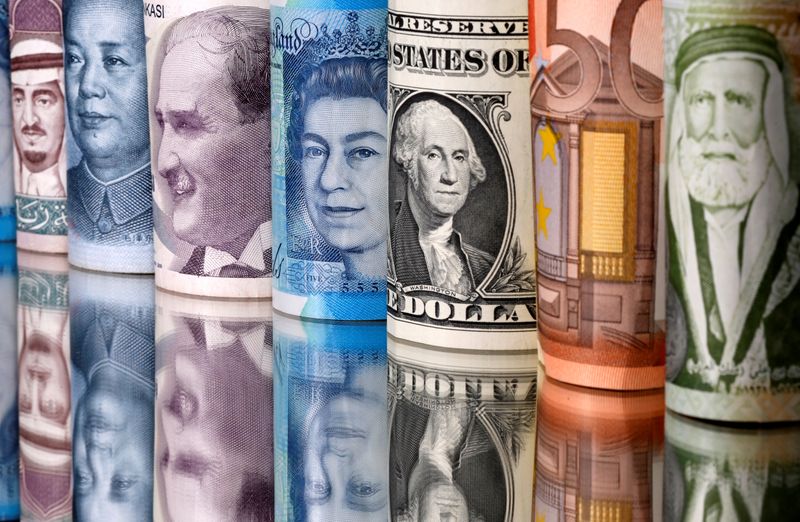By Tom Westbrook
SINGAPORE (Reuters) - The dollar was under pressure on Wednesday, after upbeat data in Europe boosted the euro and helped stoke hopes for a global economic recovery, underpinning appetite for riskier currencies.
The euro (EUR=EBS) is headed for its best month against the dollar since October, and inched higher to $1.1316 in the Asia session. The Australian dollar
IHS Markit's June euro zone Flash Composite Purchasing Managers' Index, a broad gauge of economic activity, beat expectations with a bounce to 47.5 on Tuesday from May's 31.9.
Although that is still below the 50 mark separating growth from contraction, the improvement in business sentiment - together with upbeat data in Britain and the United States - lent support to a sense that growth is returning at pace.
The next test comes from a German business confidence survey due at 0800 GMT, with markets expecting another strong rebound.
In the meantime, the positive signals seem enough to offset worries about a resurgence in U.S. coronavirus cases, and to draw bets - reflected in a rising gold price - on broad dollar weakness.
Against a basket of currencies (=USD) the dollar was flat at 96.653, just above a one-week low touched on Tuesday. The trade-exposed Korean won
"We're still seeing the counteracting forces of the economic recovery on the one hand and concerns around the virus spreading on the other hand," said Kim Mundy, FX analyst at the Commonwealth Bank of Australia (OTC:CMWAY) in Sydney.
"But overnight the Eurozone PMIs lifted, PMIs in the UK lifted and PMIs in the U.S. lifted, so the economic story, that we are seeing the recovery, is helping to underpin the commodity currencies."
The British pound found support, recovering from a three-month low touched against the euro on Tuesday (EURGBP=) and holding steady against the dollar
The yen
Against the tide, the New Zealand dollar
The RBNZ kept interest rates on hold, as expected.
NEVER MIND THE VIRUS, HERE COMES MORE STIMULUS
The moves extend markets' stubborn optimism in the face of spiking coronavirus cases in the United States, Germany and elsewhere.
For a second week Texas, Arizona and Nevada set records in their coronavirus outbreaks and 10 other states from Florida to California were grappling with surging infections.
Australia's Victoria state has re-imposed restrictions on gatherings amid an upswing in new cases there and German has imposed localised lockdowns after an outbreak at a meatpacking plant.
So far the market assumes there is a very high bar to shutting down entire economies again, so the impact on business activity will not be too great - at least as yet.
"We expect over the coming couple of weeks as we get more clarity on this, state Governors will be in a better position to decide how to proceed," RBC Capital Markets' Chief U.S. Economist, Tom Porcelli, said of the U.S. cases.
"For now, we have not seen any negative shift in consumer behaviour as a result."

Remarks from U.S. Treasury Secretary Steven Mnuchin, flagging more fiscal stimulus aimed at getting people back to work quickly, also helped the positive mood.